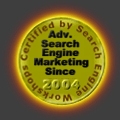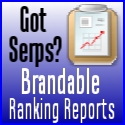 Look how old this is!
Look how old this is! I post at SearchCommander.com now, and this post was published 13 years 8 months 25 days ago. This industry changes FAST, so blindly following the advice here *may not* be a good idea! If you're at all unsure, feel free to hit me up on Twitter and ask.
Doing a little bit if research, I noticed what I thought was odd behavior in Google local, taking me to directories instead of to a business, so I immediately jumped to a conclusion (imagine that!) and Twittered about it, pinging @davidmihm and @chiropractic

Michael looked into it…


and David thought it was odd too, so he pinged @w2scott and @mblumenthal

Then, digging a little further, I figured out that it was either a mistake by the business owners, or it was fiendishly clever. Here’s a really short video showing what happened –
To be clear, the Google places quality guidelines do NOT say that it must be your website, and only say to “provide one website that represents your individual business location” .
Might it not make more sense for a local business to link to another more authoritative profile page which is s ABOUT them rather than linking to their own website from their Google Places Page, especially if it’s a brand new business?
To rank better locally, maybe I should go change my places page to link to a Better Business Bureau Profile page or something similar? I wonder…




















We’ve surmised ever since July 2011’s big Blended results update–some even sooner–October 2010–that domain authority mattered a lot more than it used to in Local. There are plenty of good examples where Google’s “Brand” preference means large corporate sites like Bestbuy.com, HomeDepot.com, etc., if properly-optimized on-site and tied to Place Pages, would blow away smaller players. If you can control the conversion experience to a high degree on a third-party profile, it’s probably not a bad idea. Probably worth testing on a FB page, for example.
Long term tactic particularly if the business has a new or low ranking website. It is a tactic frequently used by spammers and scammers looking for quick rank. Also works if a business doesn’t have a website.
The rank is dependent on the value of the city/category page above the listing.
I think it is bad for branding and you lose control over the client interaction.
When creating a links profile you need to map out the industry you are working in and think about where you can gain traffic. Links shouldn’t just be for Google’s sake rather you should think about whether people will actually click onto your link. If people won’t click on the link then you’ve only done half a job.